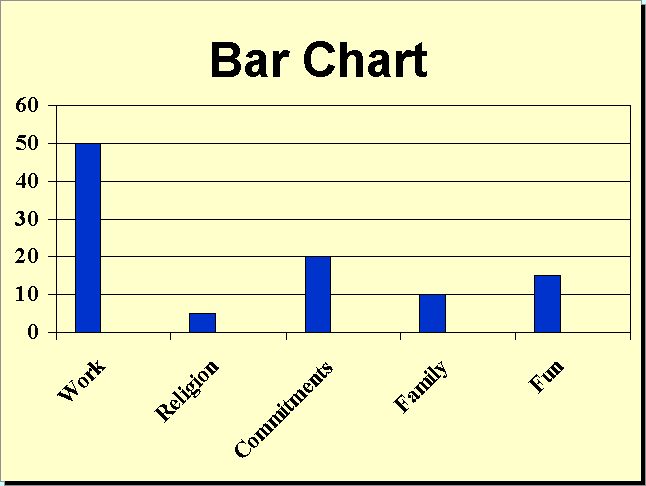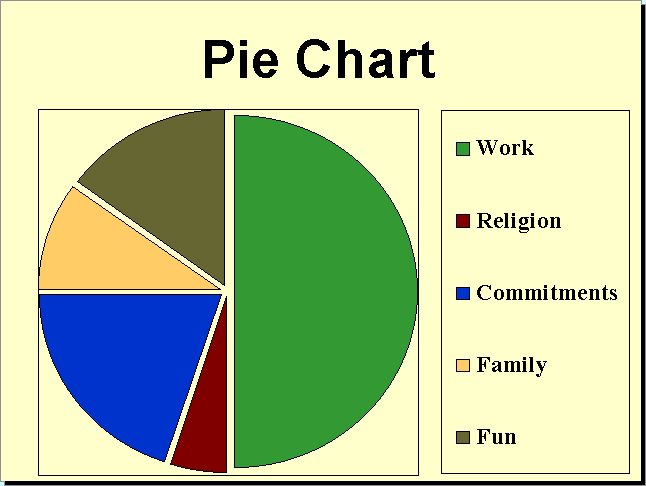Question # 1: How much of you, as a person, do you want your best friend to love? Can you imagine saying this to the best friend you have: "I know you are my best friend, but I just expect you to love 75% of me as a person."
Sometimes best friends do extraordinary things for each other. Best friends do that because they love the whole person.
Question # 2: Men, how much of you, as a person, do you expect the woman you marry to love? Can you imagine saying this to the woman you love so much you want her to be your wife: "I want you to marry me and live with me as my wife as long as I live, but I just expect you to love 65% of me as a person."
Wives who love their husbands as a whole person do some extraordinary things for their husbands. They do that because they love the whole person.
Question # 3: Women, how much of you, as a person, do you expect the man you marry to love? Can you imagine saying this to the man you love so much that you want him to be your husband: "I want to marry you and live with you as my husband as long as I live, but I just expect you to love 60% of me as a person."
Husbands who love their wives as a whole person do some extraordinary things for their wives. They do that because they love the whole person.
Question # 4: Children, how much of you, as a person, do you expect your parents to love? Can you imagine saying this to your parents: "I want you to be my parents, but I just expect you to love 50% of me as a person."
Parents who love their children do some extraordinary things for each child. They do that because they love the whole person of each child.
(Transition: I want you to follow me. When I start sharing, you may wonder how all this fits together. However, if you will think with me, I promise you it will all fit together.)
- In this short letter, Paul mentions some of their strengths, gives some
challenges, and address some problems.
- They needed all three.
- They had some commendable strengths.
- They needed the encouragement in the challenges.
- They needed to deal with some problems.
- Their strengths:
- Their first strength: their conversion to Jesus Christ was genuine and
remarkable.
- All of chapter one notes how remarkable the conversion of the people was.
- In verse 2 after telling them that he consistently, gratefully remembered
them in his prayers, Paul explained why:
1 Thessalonians 1:3 ... constantly bearing in mind your work of faith and labor of love and steadfastness of hope in our Lord Jesus Christ ... - Their second strength: in their conversion, they turned from idols to God to serve a
living, true God.
1 Thessalonians 1:9 For they themselves report about us what kind of a reception we had with you, and how you turned to God from idols to serve a living and true God, - Their third strength: They accepted Paul's message as God's word, not as
the thoughts of a man.
1 Thessalonians 2:13 For this reason we also constantly thank God that when you received the word of God which you heard from us, you accepted it not as the word of men, but for what it really is, the word of God, which also performs its work in you who believe. - Their fourth strength: They used the examples of mature Christians in other
places as encouragement to themselves in difficult times.
1 Thessalonians 2:14 For you, brethren, became imitators of the churches of God in Christ Jesus that are in Judea, for you also endured the same sufferings at the hands of your own countrymen, even as they did from the Jews.
- Paul's challenge's to them.
- Keep on growing in the way you live for Christ. (4:1)
- Keep on growing in the way you love each other. (4:10)
- Stay prepared for Jesus' return by clinging to the right values. (5:1-11)
- The problems they needed to deal with and turn loose of:
- They needed to turn loose of sexual immorality. (4:3-8)
- They needed to understand that Christians who died would be resurrected to be with God. (4:13-18)
- They needed to respect the leaders and teachers. (5:12, 13)
- They needed to improve their relationships with weak Christians. (5:14)
- At the close of the book, Paul wrote this statement to them:
1 Thessalonians 5:23 Now may the God of peace Himself sanctify you entirely; and may your spirit and soul and body be preserved complete, without blame at the coming of our Lord Jesus Christ.- "God can minister to your whole person."
- "He can completely preserve you, make the whole you holy so that you can stand in purity before Jesus when he returns."
- "God loves all of you, not just part of you."
- "God can make all of you holy, not just part of you."
- Their first strength: their conversion to Jesus Christ was genuine and
remarkable.
- The first concept is this: Christianity is an important "add on" responsibility in a
person's life--he or she just adds it on to the important things a person is
supposed to do.
- "A person is supposed to be religious."
- "Christianity is the true religion."
- "So a responsible person must be a member of the church."
- "So I am a Christian because that is what I am supposed to be."
- "A person is supposed to be religious."
- Let me illustrate this approach to Christian existence in two ways.
- The first illustration of being a Christian, or being religious, is a bar graph.

- A bar graph is often used to represent numbers as they exist in comparison to other numbers; the height of each bar allows you to compare bars.
- The projected bar graph has the following bars on it:
- Fun
- Work
- Family associations
- Necessary commitments
- Religion (In the five bars, religion is depicted as the smallest.)
- The second illustration of being a Christian, or being religious, is the pie
graph.

- A pie graph is used to allow you to compare variables, not only to each other, but to the whole.
- The pieces of pie in this graph have the same areas:
- Fun
- Work
- Family associations
- Necessary commitments
- Religion (In the five pie wedges, religion is depicted as the smallest.)
- The bar graph and the pie graph are two ways to illustrate a similar concept
of being a Christian or being religious.
- In this concept, the objective is to get the bar or pie wedge called Christianity to be the biggest bar or biggest piece of the pie on the graphs.
- If things are not going as they should in members' lives, the bar is too small or the piece of pie is too small.
- The solution is to "raise the bar" or "increase the slice of pie."
- The first illustration of being a Christian, or being religious, is a bar graph.
- Now let me share with you a completely different concept of being a Christian,
which I conclude is biblical and fits Paul's transformation concept.
SPIRITUALITY - In this concept there are no categories to be separated from each other, no
comparisons between things.
- There are no bars.
- There are no pieces of pie.
- There is a whole person dedicated to God through Jesus Christ, and that whole person is dedicated to being a spiritual person.
- Are there still areas of life like fun, work, family associations, and necessary
commitments?
- Surely!
- But no area of life is permitted to be in conflict or competition with being a whole spiritual person in Christ Jesus--life is not about competing areas of living, but being a spiritual person in every area of living.
- I cannot be sexually immoral and convince myself that its okay as long as I am religious.
- I cannot be a workaholic who neglects my family and convince myself that it is okay as long as I am religious.
- I cannot be addicted to any form of pleasure and convince myself that it is okay because I am religious.
- I cannot love money and convince myself it is okay because I am religious.
- I cannot be obsessed with success and convince myself it is okay because I am religious.
- Whatever I am doing, in any area of my life, I am genuinely, honestly a spiritual person (a) because I understand what God does for me in Christ and (b) because that is who I want to be.
- In this concept there are no categories to be separated from each other, no
comparisons between things.
Our failure as the church and as individual Christians to understand this last concept is what has us in crisis as the church and as persons. We have separated spirituality from every day living. We have encouraged Christians to be religious instead of being spiritual. And we fail to minister to the whole person in an evil world that assaults all of us.
Does depression create enormous spiritual problems? You better believe it! Does addictions create enormous spiritual problems? You better believe it! Does sexual immorality create enormous spiritual problems? You better believe it! Do disrespect, anger, hate, contempt, and selfishness create enormous spiritual problems? You better believe it!
Will the spiritual problems created by such things just "go away" if we ignore them? Never! If the church continues to ignore such problems, they will continue to cut the legs from under us!
Let me ask you something? Did God create you? If your answer is, "Yes!" may I ask, "Which part of you did God create?" Is your answer, "All of me!" let me ask, "Your emotions?" "Yes!" "Your attitudes?" "Yes!" "Your heart?" "Yes!" "Your body?" "Yes! Yes! Yes! All of me?" Then why do we ever conclude that the God Who created all of us also created a church, a spiritual kingdom that is only supposed to minister to part of us?
God can forgive the whole you. God can nurture the whole you. God can sustain the whole you. And God wants to! Do you give the "whole you" to God?

